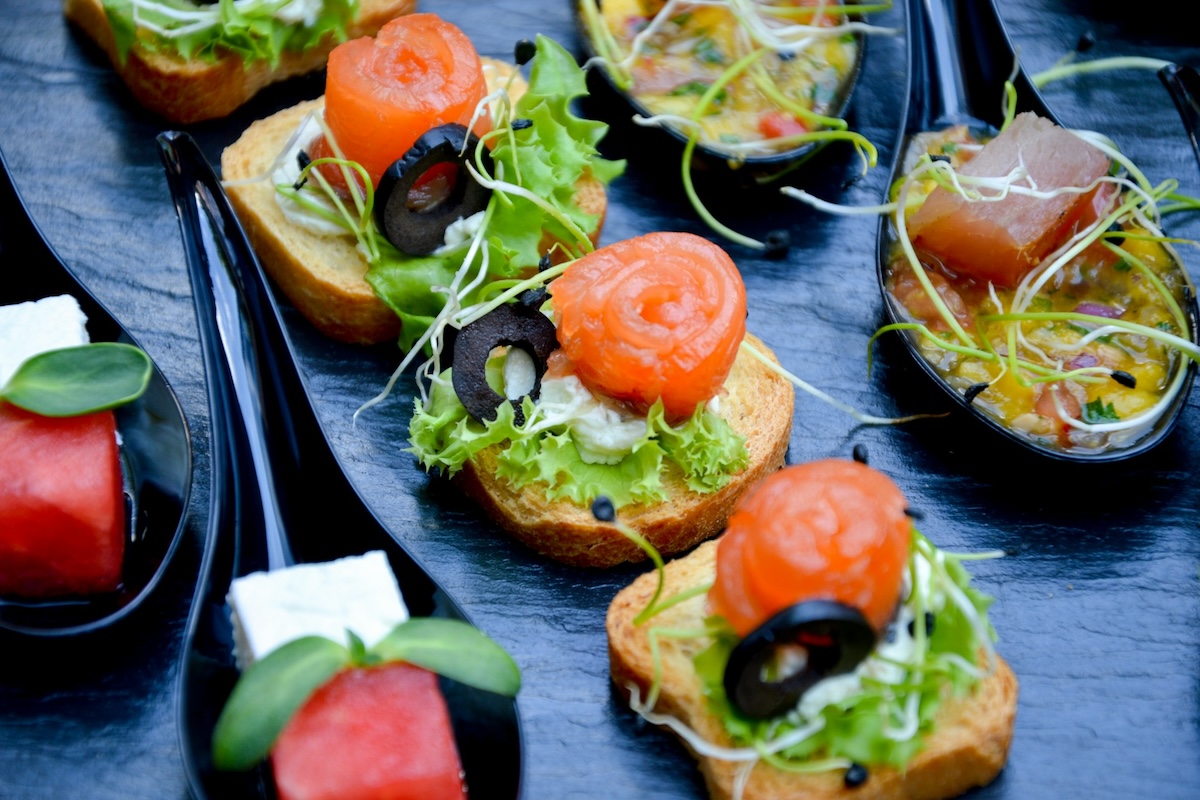Marketing your event can be difficult, but it doesn’t have to be. These 20 online marketing tips for events will help you find your ideal audience and convert them to paying customers in no time!
Your event is going to be epic! You’ve confirmed life-changing speakers, booked an exclusive venue, and planned innovative extras that will wow attendees – so why haven’t you sold any tickets?
Online marketing has changed the event landscape, making it possible for you to reach potential attendees on the other side of the world. There are countless posts about how to market your event online, but most of the tips are generic and can’t be actioned. These 20 online marketing tips for events are all actionable tasks that will really grow your guest list.
How to Get Other People To Market Your Event Online
- Run a Contest to Drum Up Buzz
Encourage potential attendees to share a picture or comment on a status for a chance to win a prize. For example, you could encourage people to share an instagram photo of their best “I’m Going to Vegas” face with your event hashtag to showcase your location. Of course, you’d award the photo with the most likes a prize to encourage sharing. Or invite attendees to vote on a small event detail such as the theme of a dinner by commenting on a status and offer one random respondent a prize. You can offer free tickets, VIP experiences, or anything else you imagine; just remember that the better the prize, the more willing people will be to share your event. You can run a contest on one or multiple social networks or do it directly on your site.
- Reach out to Influencers – Correctly
We all know that influencer marketing is a great way to drum up publicity. Unfortunately, since we all know how great (and free) it is, influencers are bogged down by requests. Set your request apart by doing the hard work for your influencer. Instead of sending a generic request to 100 influencers, send personalized requests to the 20 influencers who are the best fit. Be sure to research their following and their content. Then, provide them with content that is relevant to their audience. If you want them to write a post, give them a unique angle that fits their style. If you want them to post a tweet, send a few pre-written options. The less work they have to do, the better.
- Pay Affiliates to Promote Your Event
Another great way to reach out to influencers is to give them a reason to care. Not only can you offer them complimentary tickets for promoting your event, but you can also pay them to be affiliates. You set up a special URL for each affiliate to use in his or her promotion. Then, your affiliates earn a portion of each ticket sale they refer. People are much more willing to share your event when they have the opportunity to earn money.
- Add Social Share After Sale Buttons
When someone buys a ticket to your event, he or she is already excited. Turn that excitement into referrals by including social sharing on the last page of your sales funnel. Example copy includes: “Thanks for registering! We can’t wait to see you at _______________ on __________. We’re going to have a blast, but you’d have even more fun if you brought a friend. Use the following links to share the event with your friends.” Be sure to include pre-populated social media actions that require minimal work to get the most shares.
- Offer Discounts When Attendees Refer Friends
Like influencers, attendees are more willing to share when you give them something in return. Consider setting up a refer-a-friend promotion where an attendee has the opportunity to earn back a portion of his or her ticket cost by getting friends to register for the event. If you would rather not offer money back on tickets, you could always offer a VIP experience or swag bag for groups of 2 or more who register together.
How to Use Social Media to Market Your Event Online
- Target More than Just Facebook and Twitter
Facebook and Twitter are great assets for your online marketing plan, but they aren’t the only players in the game anymore. Instagram, Pinterest, Snapchat and live streaming sites like Periscope and Blab provide active communities with less competition. Optimizing your content so that it can be shared across multiple social media networks means you’ll reach more people. In addition to making sure your content translates well across mediums, tailor your approach to each site’s strengths in order to maximize your return.
- Host a Pre-Event Event on Social Media
The best way to give people a taste of your event is to host a pre-event event. Whether this is a Twitter party, a behind-the-scenes Periscope broadcast, or a Blab with some of your key speakers, be sure to advertise it across as many platforms as possible. Don’t forget to send a special link to everyone who abandoned the registration process without purchasing a ticket, encouraging them to attend your pre-event event for free to see what you are all about. Of course, the more exciting your pre-event event, the more hyped people will be to attend your live event. You could always combine your event with a contest for an experience that will really get guests (and potential guests) talking.
- Offer a Private Facebook Group Exclusive to Attendees
People are always looking for a way to network. A great way to add value to your event experience with almost no work on your part is to create a private Facebook group for attendees. After someone registers, send them the link to the group in a follow-up email. Verify registrations before approving requests to join the group to keep it exclusive. Schedule periodic posts to the group to keep people engaged and create documents where people can request ride or room shares if that is relevant to your audience.
- Hashtag Everything
First, create a stellar hashtag. It should be short, memorable, and unique. Even though it’s just a few characters long, this may not be something that you can come up with in five minutes. Do your research because your hashtag is a huge part of your online marketing. Once you identify your hashtag, use it in social media post where hashtags are appropriate. Encourage attendees to use the hashtag, and repost some of their content – with permission, of course. Be sure to incorporate the hashtag into your social media bios and all branded materials so that it becomes embedded into your attendees’ minds.
- Create An Awesome Video
Video dominates social media, especially on Facebook. Create a professional video about your event. Make it fun, rather than overly promotional. The goal here is to garner attention, to make people FEEL something that will make them want to learn more. Upload the video directly to Facebook for increased views and virality. Also, upload to Vimeo and Youtube so that you can maximize your reach. You can also embed the video into the relevant section(s) of your website.
- Follow Relevant People After You Post
You just posted the best tweet in the history of hashtags. Now is the perfect time to follow relevant people because when they click on your profile, they will see your brilliant (and targeted) tweet at the very top of your profile. Find people to follow by looking for influencers in your event’s niche and following their followers. These people are already following someone in the right niche, so they are more likely to follow you and be interested in your event. Don’t forget to use the Twitter ‘Pin’ button too.
- Schedule Social Media
Social media is a huge job, and it’s only one piece of the puzzle. Use scheduling tools such as Buffer, Tailwind, and Hootsuite to save yourself some time. Schedule your social media… but remember that it is still SOCIAL media. While scheduling social media is a great timesaver, don’t become too distant. You still need to take time each day (perhaps multiple times each day) to respond to questions and post timely updates. You’ve got to be a part of the conversation or people will stop talking about you.
How to Leverage Your Network To Market Your Event Online
- Promote Your Speakers
Your speakers are a huge part of your event, and their names and stories will sell tickets. Interview them on your podcast, allow them to guest post on the site, or create a round-up post featuring all of your speakers’ opinions on a topic. For example, have each speaker submit the title of the book he or she would recommend to people in your industry with a quote about why it’s the best. Then compile the recommendations into a post entitled # [Event Industry] Books You Have to Read or [Event Name] Reading List. Be sure to link to your speakers’ websites and/or social media. Your speakers get exposure; your readers get pumped; you get sales. Win-win-win.
- Help Your Speakers Promote Themselves
Create images that combine your event branding with your speaker’s name and photo. Send these images (in multiple sizes) to your speakers for them to use in their own social media posts or websites. You can also create a quote image featuring their face and one of their best quotes along with your event hashtag. Share it on your social media networks, and then share it with your speakers in case they would like to use it on their own social media networks.
- Exchange Tickets for Services
For events that don’t have budgets for videographers and professional photographers offer free tickets to your event in exchange for online marketing necessities. Having great photos and video will do wonders for your online marketing, and unless you can do them yourself, you need to find a professional. If you don’t have the money to invest, try to find someone willing to exchange services for event tickets.
- Ask Your Email Contacts To Promote
You don’t want to be spammy, but a genuine ask for promotion won’t come across that way. Announce your event to your email contacts and ask them to forward your message to people who might find it useful or tweet a pre-written tweet included within the email. Be sure to thank your contacts in advance for their support in helping you launch the event, and remember to help them out when you receive similar emails in the future.
How to Market Your Event Online During & After The Event
- Be Social During the Event
Your smartphone is your best friend during an event. Take pictures, tweet quotes, live stream impromptu interviews between sessions, and interact with your attendees who will all be doing the same. Encourage attendees to be social at the event by providing Twitter and Instagram handles for all vendors and speakers on a cheat sheet or in your event app. Follow your hashtag and like, retweet, or share user-generated content to increase buzz. Attendees will keep posting if they get a lot of engagement on their posts.
- Monitor Mentions After the Event
If this is an annual event, you will want to keep working after the event is over. Follow mentions of your event on blogs and social media over the following weeks, and save them for future reference. Contact writers now to ask if you can use their quotes and/or images in future promotion since they are currently excited about the event. You’re much more likely to get a response two weeks after the event when they just posted a recap blog than in 10 months when you are looking for material for your marketing campaign.
- Have Attendees Fill Out A Survey
This one seems pretty obvious, but a lot of events miss it. Offer your guests the opportunity to fill out a survey and be sure to include a way for them to opt-in to emails in case they haven’t already. Also, give them a place to write their thoughts so that you can collect them for future testimonials. At the end of each survey, provide a check box asking if you can share their comments in your promotions. Then, if they check it, ask them to provide social media handles so you can tag them for increased visibility.
- Send Out Helpful Content Throughout The Year
The best events are relevant all year long – not because they spam inboxes constantly, but because they are genuinely seeking to improve their audience’s lives. Keep in touch with attendees by providing educational content throughout the year. These communications don’t have to be constant, 3-5 times between events should be plenty. You just want to make sure you are staying relevant, proving value, and increasing authority all year long.
In Conclusion
Online marketing is a great way to promote your events, and there are a million possibilities for how you can do it. The sheer number of options can be overwhelming, but you don’t have to incorporate all of these tips into your online marketing for events TODAY. Choose your favorites and start testing them with your audience. Keep what works and ditch what doesn’t. You can always come back later when you are looking for more new ways to market your event online.
So which tip is at the top of your list to try out?





